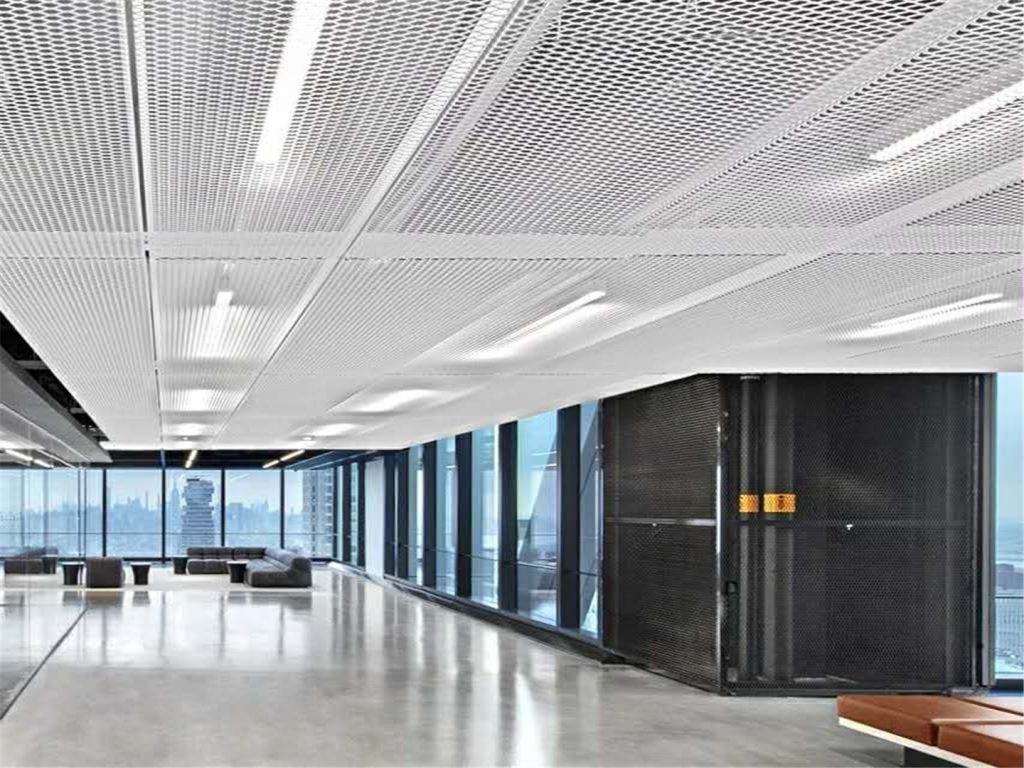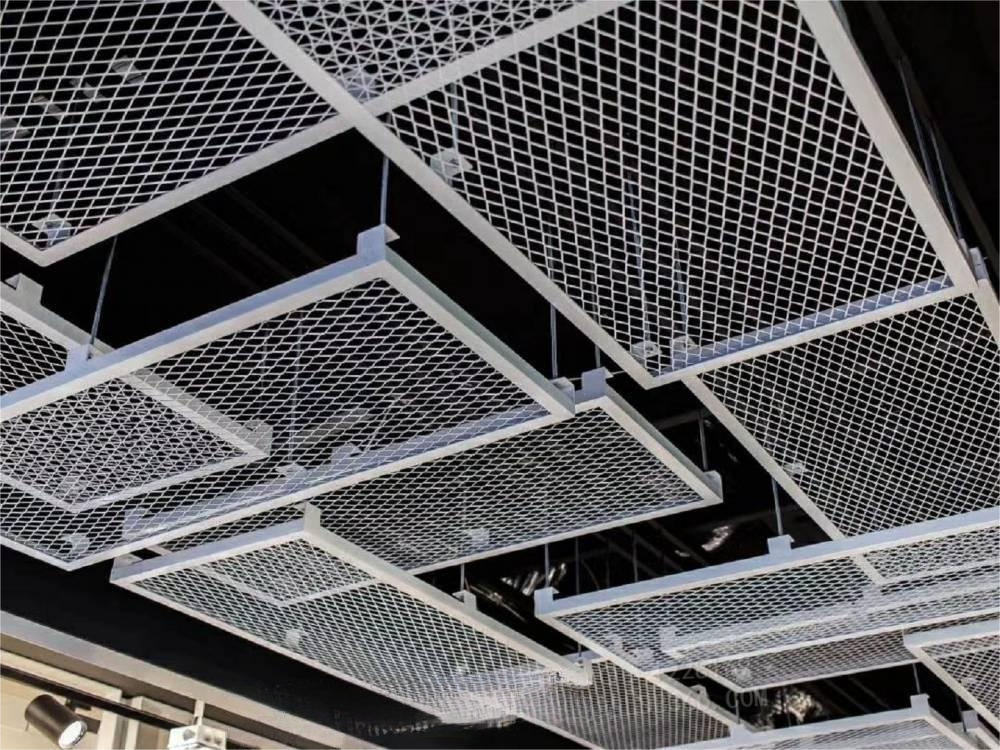Aluminum mesh ceilings are versatile architectural elements that offer a blend of functionality, aesthetics, and sustainability. These ceilings, characterized by their mesh-like design crafted from aluminum alloys, find diverse applications across various settings, from commercial spaces to residential interiors. Here’s an exploration of their features and applications.
Ventilation and Airflow
Aluminum mesh ceilings promote natural ventilation and airflow within interior spaces. The open mesh design allows air to circulate freely, improving air quality and maintaining comfortable indoor environments. This feature is particularly beneficial in areas with high humidity or temperature differentials.

Light Diffusion
The mesh structure of aluminum ceilings facilitates the diffusion of natural and artificial light. By dispersing light evenly across the space, these ceilings create a visually appealing ambiance, reduce glare, and minimize the need for additional lighting fixtures. This feature enhances energy efficiency and contributes to a more sustainable lighting solution.
Acoustic Control
Aluminum mesh ceilings can be integrated with acoustic panels or insulation materials to improve sound absorption and control reverberation within a room. By mitigating noise levels, these ceilings enhance occupant comfort and create conducive environments for various activities, such as meetings, presentations, or relaxation.
Design Flexibility
One of the key advantages of aluminum mesh ceilings is their design versatility. They are available in a range of mesh sizes, patterns, and finishes, allowing architects and designers to customize the ceiling’s appearance to suit specific aesthetic preferences and design requirements. Whether creating a contemporary, industrial, or minimalist look, aluminum mesh ceilings offer ample design flexibility.

Durability and Sustainability
Aluminum mesh ceilings are highly durable and resistant to corrosion, making them suitable for indoor applications in various environments, including high-humidity areas such as swimming pools or spas. Additionally, aluminum is a recyclable material, aligning with sustainable design principles and contributing to green building initiatives.
Applications
Aluminum mesh ceilings find applications in a wide array of settings, including office buildings, retail spaces, hospitality venues, educational institutions, and transportation hubs. They can be installed as ceiling tiles, suspended panels, or decorative screens, adding a touch of sophistication and modernity to interior spaces while delivering functional benefits.
In summary, aluminum mesh ceilings offer a compelling combination of aesthetic appeal, functionality, and sustainability. As versatile architectural elements, they enhance indoor environments by promoting ventilation, diffusing light, controlling acoustics, and enabling creative design expression. Whether in commercial, institutional, or residential settings, aluminum mesh ceilings make a distinctive statement while contributing to enhanced occupant comfort and well-being.


